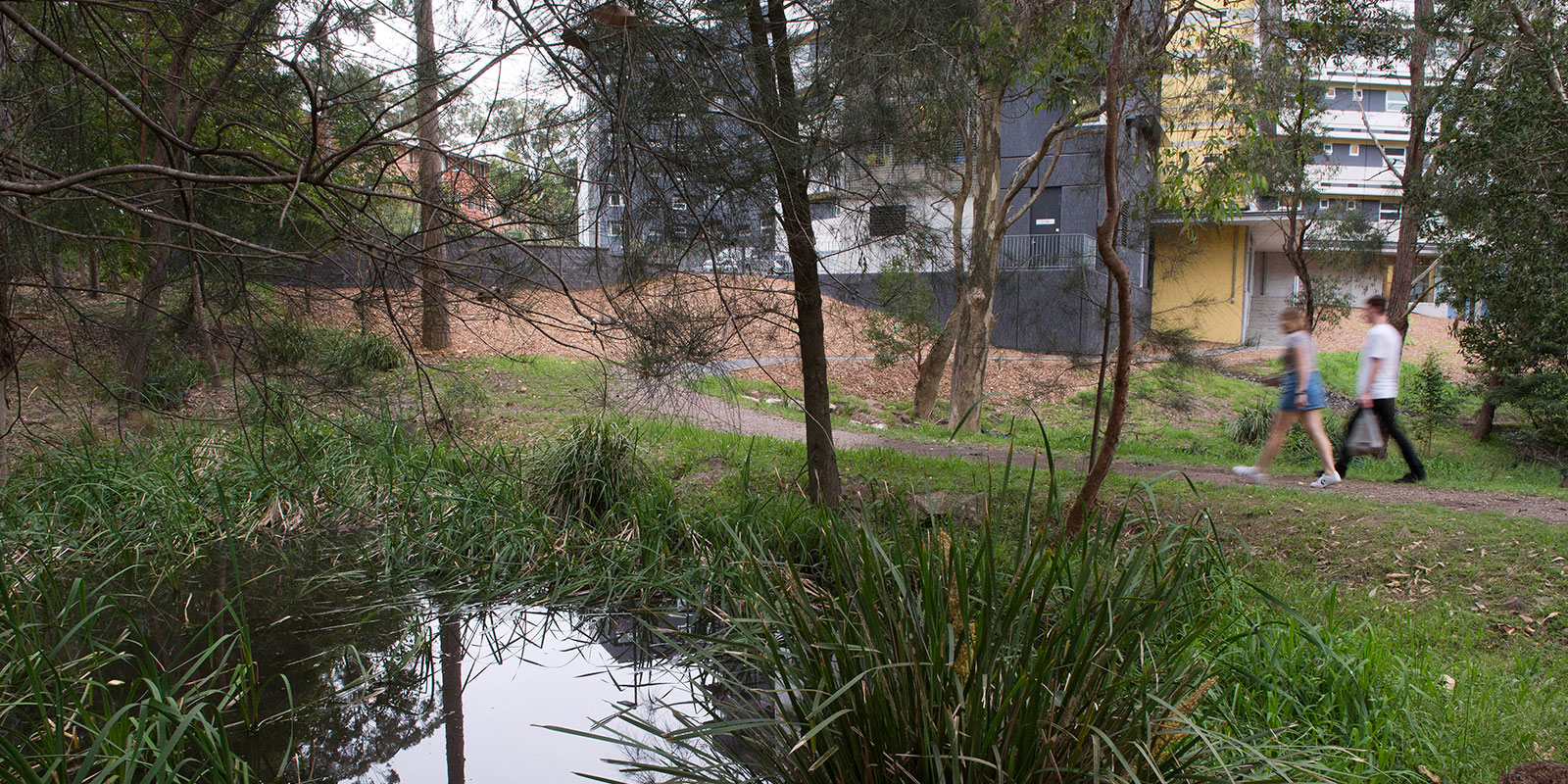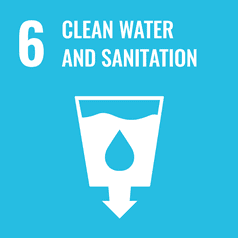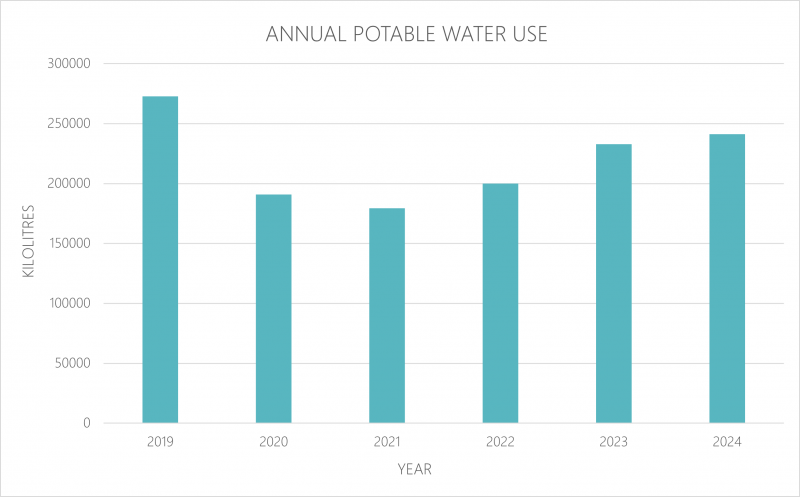

Goal 6:
Clean Water and Sanitation
Promoting Conscious Water Usage on Campus
The University of Newcastle actively promotes conscious water usage across campuses.
At the University, conscientious management of water is a priority. Water security underpins social equity, ecosystem health, and resilient infrastructure. In 2024, we strengthened our commitment through targeted initiatives, upgrades and collaborations across all campuses.
Our Approach to Sustainable Water Management
We pursue sustainable water use through:
- World‑leading research and education in water resource management, urban hydrology, and sustainable design
- Industry partnerships (e.g. with Hunter Water) to carry out campus water audits, install real‑time meter monitoring, and respond rapidly to leaks
- Water reuse and capture systems, including stormwater retention ponds and rainwater tank installations
- Smart irrigation systems (like Hunter Hydrawise controllers) that use live weather data and leak alerts to reduce unnecessary watering
- Water‑efficient building design and retrofits, ensuring rainwater is used for internal plumbing and minimizing potable water demand
- On‑campus water consumption tracking and reduction targets, backed by alarms and monitoring systems
2024 Highlights
Here are some of the key water sustainability outcomes and actions we achieved in 2024:
- Real‑time monitoring with Hunter Water
In 2024, we completed a comprehensive audit in partnership with Hunter Water and installed real‑time water meters across all campuses. These meters include alarm systems that alert facilities teams to abnormally high consumption or possible leaks—enabling prompt intervention and reducing water loss. - Leak detection and efficiency gains
The 2024 audit uncovered several previously undetected leaks and system inefficiencies. Remediation works were undertaken immediately, contributing to a noticeable reduction in reliance on mains water. - Rainwater harvesting and reuse expansion
Across our campuses, we now capture and reuse approximately 2.7 million litres of rainwater via tanks and retention systems. This water is used for landscaping and oval irrigation, reducing demand on potable supply.- At our Callaghan campus, Oval 3 is irrigated almost exclusively with stored rainwater, significantly cutting down potable water use.
- Many campus buildings now incorporate water reuse in internal plumbing—such as using captured water for toilet flushing or landscaping—consistent with our sustainable building design principles.
- Smart irrigation systems in action
We expanded deployment of Hunter Hydrawise controllers across athletic fields and landscaped zones in 2024. These systems dynamically adjust irrigation schedules based on real-time rainfall forecasts and soil moisture, avoiding unnecessary watering. In cycles canceled due to rain or wind, they are estimated to conserve up to 50,000 litres of water. - Water‑sensitive design in new and existing building works
New building projects and retrofits continue to satisfy Green Building Council of Australia 6‑Star water efficiency benchmarks. Many buildings now route harvested rainwater to internal systems. - Progress toward consumption reduction targets
Our Environmental Sustainability Plan sets a goal of reducing mains water use (per square metre) by 15 % by 2025 (relative to a 2015 baseline). While in 2023 we achieved a 10 % reduction, the new 2024 monitoring infrastructure is expected to accelerate our progress. - Water use awareness and governance
We continue to integrate water sustainability into campus decision making. With better visibility into water use patterns, building managers and landscape teams are more responsive to anomalies. Regular reporting and accountability mechanisms ensure we remain on track.

The University of Newcastle acknowledges the traditional custodians of the lands within our footprint areas: Awabakal, Darkinjung, Biripai, Worimi, Wonnarua, and Eora Nations. We also pay respect to the wisdom of our Elders past and present.